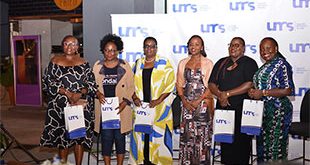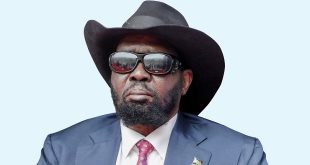
Kampala, Uganda | THE INDEPENDENT | The Head of the Civil Division of High Court, Justice Musa Ssekaana has cautioned registrars and magistrates about taking testimonies from witnesses who don’t have a National Identity Card to prove their identity.
Speaking at the Annual Registrars and Magistrates Conference at Mestil Hotel in Kampala on Tuesday, Justice Ssekaana said that the rules do not provide for witnesses having and presenting their National IDs before court before testifying, but it is critical since some lawyers connive with litigants to present impersonators for testimony.
The Justice says his court has previously registered a case where a witness under oath referred to another person telling him a statement in his affidavit. It is then that the Justice asked who the person referred to was and asked for the national ID of the witness. It was then occurred to the justice that the person testifying was an impersonator staged by the litigant and the lawyer.
The justice says that if such people are left to testify, court is bound to make decisions based on false information.
He also told judicial officers that a witness is only bound to an affidavit after taking oath in court.
According to the 2019 rules of Civil Procedure as amended, a witness statement which includes the witness’ full name, address, age and occupation is tendered as evidence in chief after the witnesses has appeared in court and taken oath.
Justice Ssekaana says often times advocates work with litigants to come up with an affidavit sometimes without even going to the Commissioner of oaths to administer the oath.
He says that’s partly why even after having an affidavit said to have been administered by a licensed commissioner of oaths, a witness before court is asked if they would like to make any amendments to their affidavits and an oath administered before court.
After court has administered the oath, no changes can be made to the testimony lest it is considered a contradiction, said the justice.
Justice Ssekaana further cautioned justices against accepting lists of litigants without consent to prove that indeed the advocate before court is representing the said litigants. He says when an advocate presents with a list of litigants, they should also provide the identities of the people and their consent to be represented.
The Justice says court has registered some cases where an advocate says they represent a certain number of people only to realize later that many if not majority of the said people do not exist or didn’t consent to being represented.
The practice is said to occur especially among advocates in public interest cases like land matters who want to exaggerate the situation, making it look like scores of people are affected by a particular land wrangle before court.
This Justice Ssekaana says later presents a problem especially when there are orders for costs.
The Chief Registrar Sarah Langa urged the judicial officers to be professional in their service, read and deliver quality rulings and judgement. She says the judiciary plan to improve the Judiciary Training Institute to be able to offer further training to judicial officers and also issue recognizes certificates of education.
*****
URN
 The Independent Uganda: You get the Truth we Pay the Price
The Independent Uganda: You get the Truth we Pay the Price


